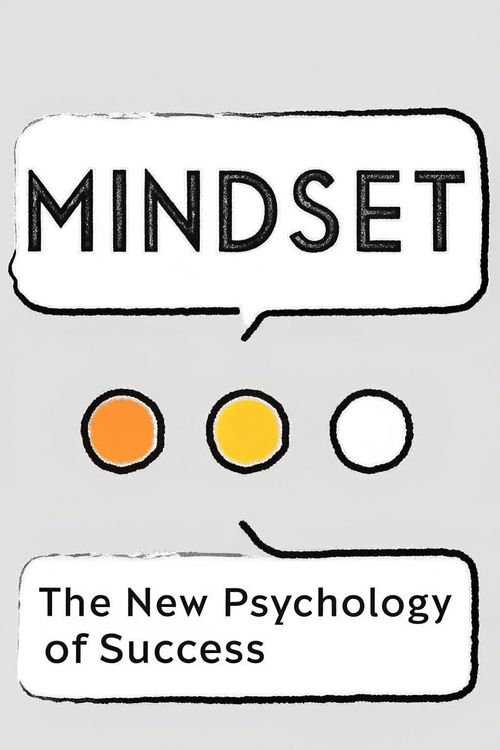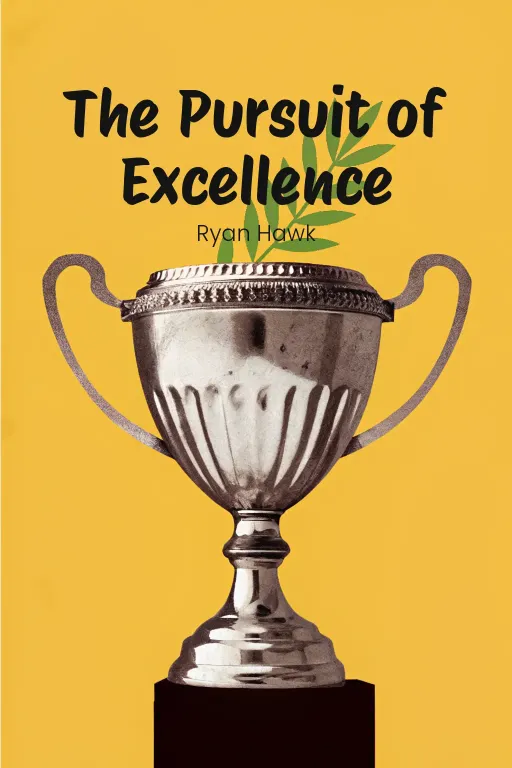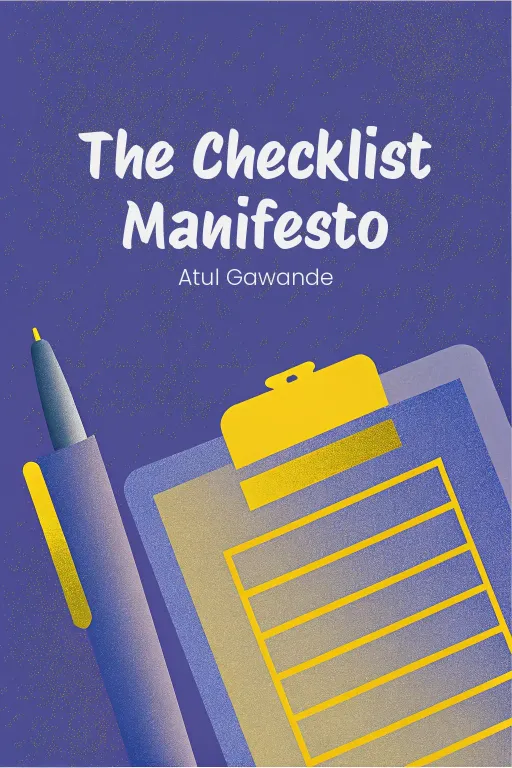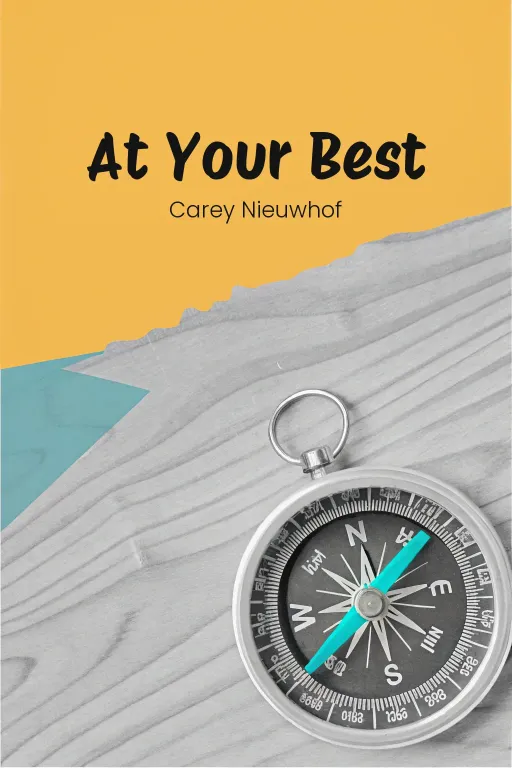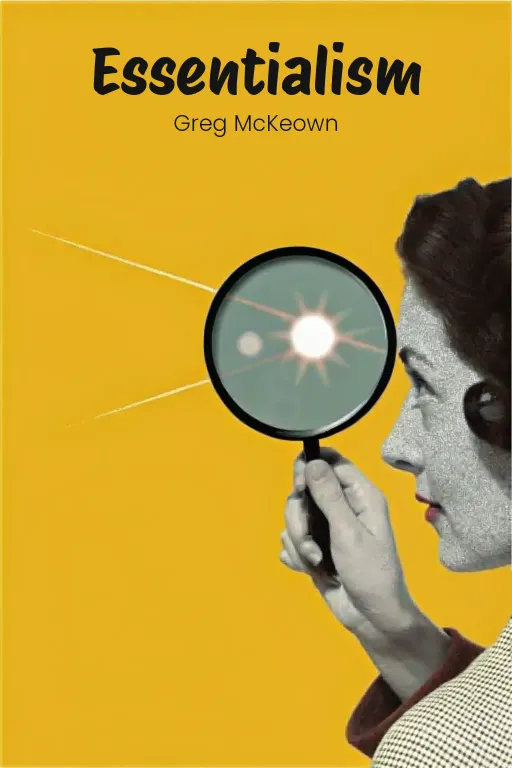
Make Today Better: The Excellence Habit
Podcast by Beta You with Alex and Michelle
The Uncommon Behaviors of the World's Most Productive Achievers
Introduction
Part 1
Alex: Hey everyone, welcome back to the show! Today we're diving into a question I think we all wrestle with: what does “excellence” really mean? Is it just about winning awards, climbing the corporate ladder, or is there something more to it than that? If you've ever wondered how to really excel without burning out or losing yourself, then stick around, this episode's for you. Michelle: Okay, Alex, but let's be honest, “excellence” can sound like one of those empty buzzwords you see plastered on office walls. What's the deeper angle here? Why should anyone care about this, especially when they're already juggling work, family, and trying to find, like, five minutes to breathe? Alex: Exactly, Michelle, and that's where Ryan Hawk’s The Pursuit of Excellence comes in. He argues that excellence isn’t about perfection or external validation. It’s actually about nurturing a growth mindset, learning to adapt and overcome obstacles, and using your unique talents to make a real difference—both in your own life and in the lives of others. Hawk weaves together compelling stories and actionable strategies with insights from historical leaders, to show us how excellence is really about the journey, not the destination. Michelle: So, it's not about chasing some shiny trophy. It's about igniting something internal that spills over into everything else? Alright, I'm intrigued. What exactly are we going to unpack today? Alex: We’re going to dig into three key ideas from Hawk's book. First, we’ll look at how he redefines excellence--not as some pie-in-the-sky ideal of success, but as a process of continuous self-improvement fueled by a growth mindset. Then, we’ll explore the practical tools and stories Hawk shares for building resilience and mastery, even when things get tough. And finally, we’ll examine the pivotal role that community and relationships play in, you know, amplifying our pursuit of excellence. Think of it like building a bridge: self-awareness is the foundation, consistent practice forms the pillars, and relationships create the spans that connect everything. Michelle: Alright, building bridges. Sounds solid enough, assuming those pillars can hold up. Let's see if Hawk's ideas can actually withstand the daily grind and all the curveballs life throws our way.
Defining Excellence and the Growth Mindset
Part 2
Alex: Okay, let's dive right in—what even “is” excellence? Hawk is super clear that it's not the same as regular success. Success is often about external stuff, right? Like, the fancy title, the nice car, the awards on your shelf. But excellence? That's totally internal. It's about how committed you are to growing as a person and staying true to what you believe in. Michelle: So, success is like buying a flashy watch, but excellence is making sure it actually tells your time? Alex: Exactly! And Hawk talks about this thing called the "arrival fallacy." It's when we think, "Oh, I'll be happy when I get that promotion or buy that house." We think we'll feel so fulfilled. But, usually, it doesn't work out that way, does it? That feeling fades really quickly. Excellence, on the other hand, is all about the process, you know? The little steps you take every day to get better. Michelle: Okay, I get it. But here's the thing, Alex: we don't live in a vacuum. The world does judge you on external things, like hitting your sales targets or getting that corner office. So, how do you balance wanting to grow internally with, you know, needing to impress the boss and pay the bills? Alex: Well, that's the cool part about Hawk's idea. Excellence isn't about ignoring the external stuff; it's about making those achievements byproducts of your growth. Like, look at the Wright brothers. They didn't set out to win awards; they wanted to solve the puzzle of flight. All those failed attempts, those crashes in the sand—they weren't setbacks. They were lessons! Excellence for them wasn't about beating other inventors; it was about staying curious and learning from every mistake. Michelle: Yeah, alright, figuring out flying does sound more exciting than me struggling to assemble IKEA furniture. But, come on, not everyone's a Wright brother, right? How does this even work for someone stuck doing routine tasks or just trying to make ends meet? Alex: That's where the whole "growth mindset" comes in. Carol Dweck, the psychologist Hawk mentions, has shown that if you believe you can develop your abilities, it changes everything. Instead of seeing challenges as proof that you're not good enough, you start seeing them as chances to learn and grow. And that builds resilience, because setbacks don't define you anymore; they refine you. Michelle: Okay, mindset is great and all, but what about practical tools? Like, how do you actually build resilience when life keeps throwing curveballs? Alex: Hawk emphasizes how important feedback is. Think about pro athletes. They don't just rely on raw talent; they watch tapes of their games to analyze every move. They want critiques, not as personal attacks, but as ways to fine-tune what they do. And it's the same for everyday excellence. Seeking feedback, even if it stings a little, helps you adjust, improve, and make sure your actions line up with your goals. Michelle: So, admit we're wrong, rewind the tape, and figure out where we messed up. Easier said than done, I would say. Alex: Definitely, and look, Hawk's not saying it's easy. But the key is building small, consistent habits. Todd Henry's "die empty" idea is great—it's about making sure you use everything you've got, your potential, your ideas, your effort. Excellence is about giving it your all every day, even in small ways, because those little efforts add up over time. Michelle: Alright, that's incremental progress, so we're playing the long game here. What's a real-world example Hawk gives us of this daily grind of excellence? Alex: Think about a teacher, right? If they're always trying new things in the classroom and asking students for feedback, they're building excellence. They're not necessarily trying to win awards or be "Teacher of the Year." They're just making their craft better every day, which helps their students and makes them better at what they do. Michelle: I like that—small tweaks, consistent practice. It's not flashy, but it gets the job done. So, to recap: self-awareness and habits are the sturdy pillars, right? Alex: Exactly! And don't forget the growth mindset as the foundation, inspiring resilience and adaptability. Put them all together, and you've got a structure where excellence isn't a destination, but a conscious choice to grow, every single day.
Practical Frameworks for Mastery and Resilience
Part 3
Alex: So, understanding the basis of excellence and having a growth mindset naturally leads us to practical strategies to keep things going. That's where the Feynman Technique and Incremental Improvement come in. They bridge theory and practice, and are tools to add mastery and resilience into our daily lives. Michelle: Okay, now we’re getting practical, figuring out how to actually achieve excellence. Let’s start with the Feynman Technique. Sounds like something from a university. What is it really? Alex: It’s named after Richard Feynman, who was a super smart physicist that won the Nobel Prize, but it isn’t just for physics. Imagine trying to explain something complicated, like quantum mechanics, to a five-year-old. That's step one of the Feynman Technique—breaking it down into simple, clear terms. You’d quickly see if you had gaps in your knowledge, since you'd struggle to explain it. Then you go back to the unclear parts, study more, and simplify it even further. Michelle: So it’s a knowledge test—seeing how strong your understanding is by really digging into the details. What makes this effective, though? Alex: Well, the Feynman Technique is great at showing you the holes in your knowledge. Say you're trying to explain momentum. You think you get it—speed times mass, simple. But when you try to teach it, you feel unsure. Maybe you can’t explain how it connects to other laws or why it causes collisions. You then have to restudy and improve your understanding. Over time, you'll be able to explain the topic in clear terms and improve your command of it. Michelle: Right, and Feynman used this himself, right? Wasn’t he known for explaining complex things in terms people could understand? Alex: Exactly. He made quantum mechanics—a super complicated subject—easier by using everyday metaphors. For example, he explained the uncertainty principle by comparing it to how we track a moving ball. His ability to explain complicated things made him a great teacher and made his knowledge stronger. Michelle: This isn’t just for scientists, is it? Let’s say I'm trying to learn how to manage my team at work. How would I use the Feynman Technique? Alex: That’s a perfect example! Imagine you’re coming up with a new leadership strategy. First, write it down clearly, as if you were explaining it to a new employee. You might find that you can't explain why a certain decision-making style works in your industry. That’s when you restudy, do research, or ask colleagues for help. You’ve not only improved your leadership knowledge but also become a better communicator. Michelle: I get it, you have to admit what you don’t know before you can fix it. Let’s move on to incremental improvement, though. Slow and steady wins the race, right? Alex: Basically. Incremental Improvement means breaking big goals into smaller tasks and moving forward step by step. Take the story of Roger Bannister, he broke the four-minute mile. Everyone thought it was impossible, but he focused on making small changes—interval training for speed, and mental visualization. It wasn’t about instantly running past history; it was the result of consistent work that made it possible. Michelle: That’s a great example of breaking limits. What’s amazing is after he ran the mile record, other people followed soon after. It was like he broke a mental barrier too. Alex: Exactly! Bannister’s achievement shows another part of Incremental Improvement—when you show progress, it inspires others. People start to see that their limits might not be as strong as they thought. It can be used everyday. An artist who draws daily improves bit by bit; a writer who writes 500 words each morning will eventually write a book. Consistency changes everything. Michelle: But what about the boring side of being consistent? What if your goal feels far away, and each little step doesn’t seem to matter? How do you stay motivated? Alex: That’s when celebrating minor progress is important. You need to see small victories to stay motivated. Say you’re saving to buy something expensive. When you save your first thousand, it inspires you to keep going, even if the goal is 10 times that amount. Or if you’re learning an instrument, maybe the first time you play a song well keeps you practicing. Progress isn’t always smooth, but seeing small wins reminds you that each effort goes towards something big. Michelle: Okay, but now we've talked about simplifying and taking things slow. What about failing? Let’s say you give it your all and fail spectacularly. That ruins the whole idea of being “resilient”, right? Alex: It can. But being resilient is really about what you do afterwards. Look at the Wright brothers. They didn’t have an easy road to flight; they had many crashes. They were resilient because they looked at what went wrong each time and made small changes. They saw failure as feedback. Michelle: People enjoy those stories of never giving up. What made the Wright brothers different is they combined their determination with learning. They weren’t stubbornly rebuilding the same plane, they were improving the design. That’s resilience mixed with action. Alex: Exactly. Resilience isn’t just being stubborn it also relies on being able to adapt and keeping going. If failing is part of your learning process, it will become a part of your future success. Michelle: Okay, to summarize: simplify what you know, move forward little by little, and when you face setbacks be curious instead of sad. It’s a solid tool to becoming excellent. Alex: These tools aren’t just for athletes or inventors, they’re for everyone. Every small step, improvement, or lesson becomes part of a bigger journey. And that’s what makes being excellent so deeply human.
The Role of Connection and Community in Excellence
Part 4
Alex: So, with these tools, we can explore how these principles really impact our teams and communities. Today, we're diving into "The Role of Connection and Community in Excellence.” We're expanding excellence from just personal growth to include how we grow together. It's about how trust, generosity, purpose, and even storytelling can build an environment where collaboration creates excellence. Michelle: Okay, I like that we are zooming out. It's one thing to be personally excellent, right? But what happens when you throw a team into the mix? That's where thing get difficult. How does Hawk kick this idea off? Alex: He starts with trust. It's the cornerstone of any meaningful relationship. Without it, you can't have authentic communication, collaboration, or innovation. Hawk says trust isn’t just some nice feeling; it’s knowing that when you’re vulnerable—share ideas or even admit failures—you'll be met with respect, not exploitation. And that's what creates psychological safety. It's the feeling that you can take risks, voice your concerns, and be creative without fearing negative repercussions. Michelle: Psychological safety… Sounds straight out of some HR training manual. But it makes sense, especially under pressure. Do you have an example of this? Something to make it less theoretical? Alex: Oh, absolutely! Think of a tech startup, like the example Hawk provides. Maria is a junior developer; she's got this great idea for a software feature, but she's afraid to speak up, right? She worries it’ll get torn apart. But, because her company really cultivates a culture of trust—open communication, collaboration without judgment—she finally voices her idea. Her colleagues listen, offer constructive feedback, and refine the concept. In the end, her idea? Most successful product launch. It benefits her and the entire team. Michelle: Okay, that makes sense. Trust fosters collaboration, in this ideal world. But what about when there's mistrust? Personalities clashing, people constantly shooting down other people’s ideas... that kind of thing? Alex: That's where leadership is key. Hawk talks about leaders needing to model trusting behavior, like, showing vulnerability. If a manager admits, "Hey, I messed up here," it breaks down hierarchies and makes it safe for others to own up to their mistakes. And then there's the hard work of building trust—brick by brick—through consistent actions, listening, and being fair. It's not overnight, but it's vital for any team aiming for excellence. Michelle: Brick by brick… sounds like a marathon, not a sprint. So, trust gets the gears turning. What’s next on Hawk’s checklist for collective excellence? Alex: Generosity. Hawk argues that being generous—giving without expecting something back immediately—really multiplies excellence. When people share time, insights, or resources freely, it creates a ripple effect of support and innovation. Jim Collins touches on this too, he emphasizes how being generous builds a culture where people want to pay it forward. Michelle: Feels a bit like “Karma 101.” Is this all about the feel-good, or are there real benefits to generosity? Alex: Absolutely there are tangible benefits. Take the mentoring example from Hawk. Imagine a senior employee mentoring someone more junior. They share strategies, help them through problems, open doors for them. It might seem one-sided, but it isn't. That mentee will eventually grow, share their knowledge too. Generosity creates stronger teams. Knowledge and expertise doesn't just stay at the top, it's decentralized. The effects just compound. Michelle: Right, one person's generosity can lift everyone. But is there a limit? If you're constantly mentoring, are you going to burn out? Alex: Good question. Hawk doesn't say "give at all costs." It’s about being generous sustainably. Offer your expertise or time you can give without hurting yourself. He also notes that generosity works best as a culture, where one person gives, others step up, which creates a balance. Michelle: So, trust sets the stage, generosity expands the community’s growth. Where do we go from that? Alex: To shared purpose. It’s basically the glue holding everything together. A team without a united vision will inevitably fall apart. Shared purpose provides both direction and cohesion—critical for groups looking to achieve more than just individual contributions. Michelle: But how do you define shared purpose, especially in big groups where people’s priorities are all over the place? Alex: That's what's so interesting. Shared purpose doesn’t have to override individual goals. A good leader aligns individual goals under a bigger umbrella. Take Benjamin Franklin’s Junto Model. It wasn't just a casual meetup, it was a group united by a vision of collaborative learning and service to society. Members were from different fields, but they all believed in asking questions, sharing ideas, and improving as individuals while benefiting the group. Michelle: Interesting. So, the Junto was like an 18th-century mastermind group? Alex: Exactly! Members learned and contributed to each other's growth. The inclusivity was key, it wasn’t about who had the best credentials; it was about who was open to learning and collaborating. That built trust and accountability, allowing diverse ideas to flourish while keeping the group on track. Michelle: So, trust is the foundation, generosity widens the circle, and shared purpose keeps everyone headed in the same direction. What's left? Alex: One crucial piece: storytelling. Hawk emphasizes how sharing stories really deepens community connections. Sharing stories—wins and losses—builds empathy and creates a collective identity. It reminds people of their shared history, struggles, and aspirations. Michelle: Give me a real-world example. Alex: Okay, imagine a group of educators at a workshop. They start sharing stories—one shares the challenges of a classroom, another recounts a breakthrough with a student. These narratives create empathy, solutions, and connect them through their shared purpose of improving education. It builds camaraderie while reinforcing the collective purpose. Michelle: So, storytelling isn't just a feel-good thing, it's a way to strengthen groups. Makes sense. Is there a main message we can get from all of this? Alex: Definitely. When a community focuses on trust, generosity, shared purpose, and storytelling, they just don't get better outcomes, they create collective excellence which is more than anyone could do alone. Excellence isn’t just an individual win; it’s a team marathon.
Conclusion
Part 5
Alex: Wow, what an incredible journey we’ve had today! We really dug into how Ryan Hawk kind of blows up this idea that excellence is some shiny award you get. He reframes it as this deliberate, constant process of growth, which I think is so much more realistic. Michelle: Yeah, he basically says it's not about the destination, but the climb, right? By embracing resilience, always learning – using tools like the Feynman Technique and just making small, incremental improvements – we can all find our own way to mastery, wouldn't you say? Alex: Absolutely! And it's not just about individual effort either, Michelle. Which I think ties everything together. Hawk reminds us that excellence isn’t this solo journey. Trust and generosity create the right environment, a shared sense of purpose keeps everyone pulling in the same direction, and good storytelling strengthens those bonds. It's really about finding strength in community and how working together actually makes each of us better. Michelle: So, it’s like a positive feedback loop, right? The better the team, the better the individual, and vice versa. Okay, I like that. So the big takeaway here is that chasing excellence isn’t about some unattainable perfection, or even getting pats on the back. Alex: Exactly! It's about consciously taking those little steps every single day, constantly improving what you do, helping the people around you, and, most importantly, actually enjoying the process. Michelle: Okay, so let’s put this into practice; let's get practical. Whether you're working towards a personal goal, leading a team, or just tackling your daily tasks, ask yourself: what's one small, but meaningful, thing I can change today to embody this idea of excellence? And not for the applause, but because I want to grow. What would you say? Alex: I love that question, Michelle. It's such a good way to end this. So listeners, remember, excellence isn’t a destination you arrive at; it’s about evolving into the best version of yourself, through hard work, bouncing back from setbacks, and connecting with others. Now go out there and take that first step!
